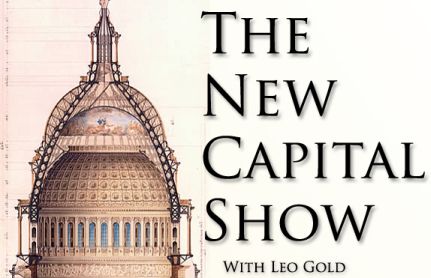General Motors and Risk Management
In this show, we take up the issue of General Motors and its risk management practices, focusing on two areas: its pension/healthcare obligation problems, and its fuel efficiency problems. No doubt the people who run, and who ran, GM claim to be capitalists. But a competent capitalist must be aware of the risks to their capital, as well as the potential returns. We'll first focus on a superb new article in The New Yorker by Malcolm Gladwell (of The Tipping Point fame) to get our discussion going. And as always, we'll touch on these other items in the news:
- In Terror War news, Don Rumsfeld not only disagrees with his opposition's solutions to the problems he has caused, but he thinks we don't even have a clue about the realities of the world, and Keith Olbermann's forceful response.
- In environmental news, California sets the pace in GhG regulations, and a big emissions deal gets done in China.
-
And in economic news, even though US real wages stagnate poverty doesn't rise above its current sad level, Ben Bernanke (uh, the new Fed Chief folks) sees the downside of globalization.



Reader Comments (3)
Leo's reasoning for why CEOs and leaders do not do this rests upon one assumption that may indeed be spurious however. I don't think wealthy CEOs see only two options on the table (ie pooled vs. non-pooled risk). I think they want pensions done away with altogether.
Here is what I think wealthy republican CEOs and other leaders think: Yes, pooled risk is better than non-pooled risk, but no risk is better still. Why not let companies off of the hook for their pension obligations, disband medicair and social security, and let the workers rot? I am pretty sure that this solution would be more economically gainful for companies like GM than even pooled risk, and in conservative minds would make our companies leaner and our more competitive with the rest of the world. They would then say, that if you don't like being a worker, you should simply pull yourself up to being a CEO yorself.
This kind of thinking goes along with more general statements that I hear from conservatives. They basically seem to be saying that our workers have it better than workers in other countries, and this makes our companies non-competitive. The impasse is that providing for retirees and other economically low value people is a moral issue first. Economics only come into play when you make the moral deciesion to do anything at all for the little people.
Conservatives always say let the church and individual families take care of the low value, whereas you and I say that society at large should do it. I think that the real problem is that pooled risk only works when you believe in a larger society or government. To me, the sad fact is that conservatives do not share such a belief.
Maybe, but I don't think so. I think Gladwell has it right. GM's CEO should, theoreticaly and taking into account his interests, be leading the charge for nationally pooled pension risk. But he's not, and it's because his political fellows would think he's gone loony.
Leo Gold
The biggest problem you are going to have with any system you use is going to be honesty. If you do not prepare for this, any and all systems will fail.
As far as GM ,or any of the failing major companies go, Gladwells way may be the best way now for them to keep the pension plan if that is what they want to do. As of why he is not using this idea, you may be right that he is too embarrassed to take this route, or he may not simply care. Some people (and not just conservatives) do not care about others when everything is fine for them, some care more for the company itself than they do for anyone else, some only care about the money, while some actually care about their workers.
Mr. Gold can you tell me how much oil is used here in American again? I do not remember if it is 8 million or 8 billion a year?
Samuel Davis